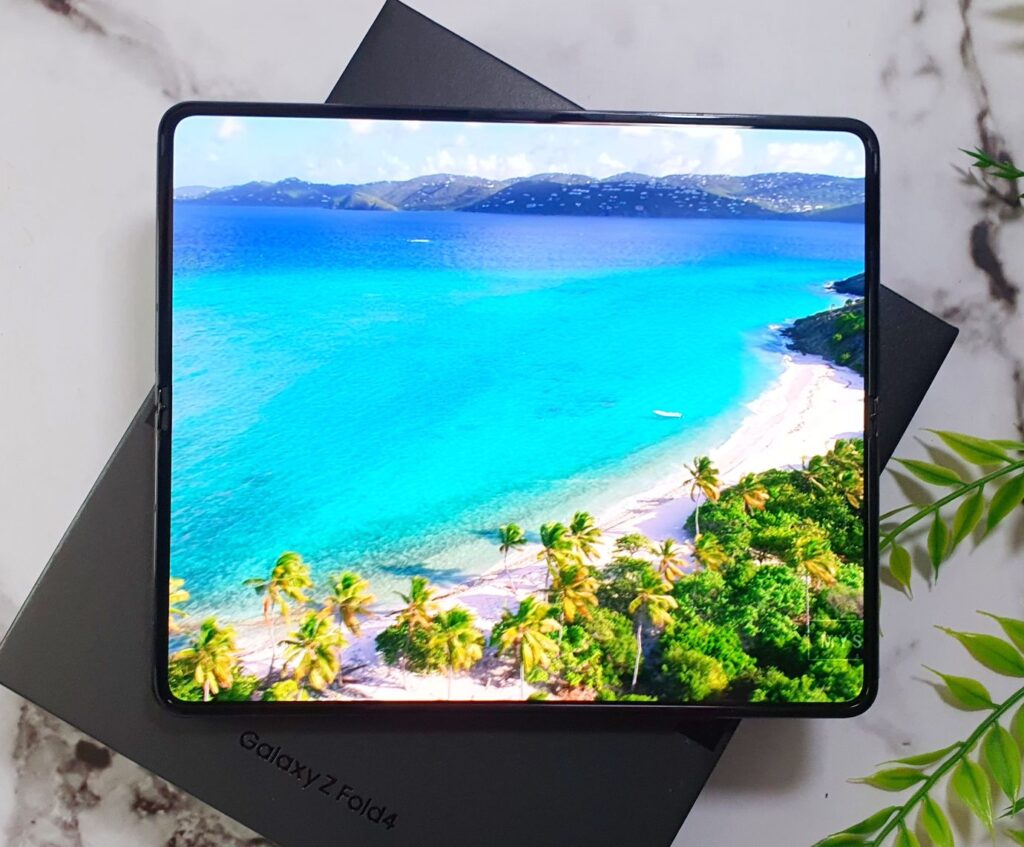
Samsung Galaxy Z Fold4 Review – Marvellous Multitasking Masterpiece Made Manifest
Intended as the successor to last year’s Samsung Galaxy Z Fold3, the new Galaxy Z Fold4 foldable made its debut alongside the mainstream-oriented Galaxy Z Flip4. We previously took a quick look at its build and design in our Galaxy Z Fold4 first look feature where it was immediately clear that it was a carefully considered improvement in almost every way from within and without. For a closer look at what differences between both phones, check out our Galaxy Z Fold4 vs Fold3 feature here.
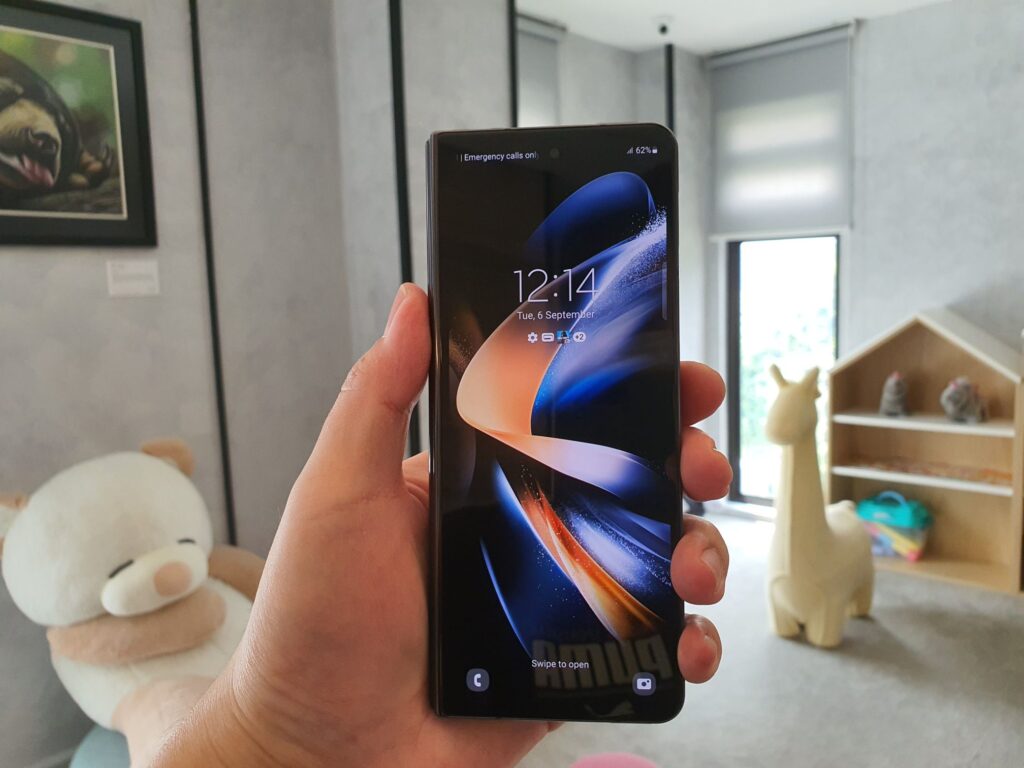
With prices ranging from RM6,799 and up for the 256GB model all the way to a princely RM8,299 for the 1TB model, the Galaxy Z Fold4 does not come cheap and there’s almost nothing else in the market that has its capabilities, but is it worth the money? Here’s our Samsung Galaxy Z Fold4 review where we put their ultimate foldable flagship to the test!
Samsung Galaxy Z Fold4 review – Performance and Benchmarks
Table of Contents
In terms of hardware, the Samsung Galaxy Z Fold4 comes equipped with the best hardware that they can muster from their foundries. You get the latest Snapdragon 8 Plus Gen 1 processor – the best mobile processor available for 2022 – built on a more efficient 4nm process, 12GB RAM with up to 8GB vRAM and up to 1TB fast UFS 3.1 storage though in the case of our Galaxy Z Fold4 review sample, it sports the base-level 256GB of storage.
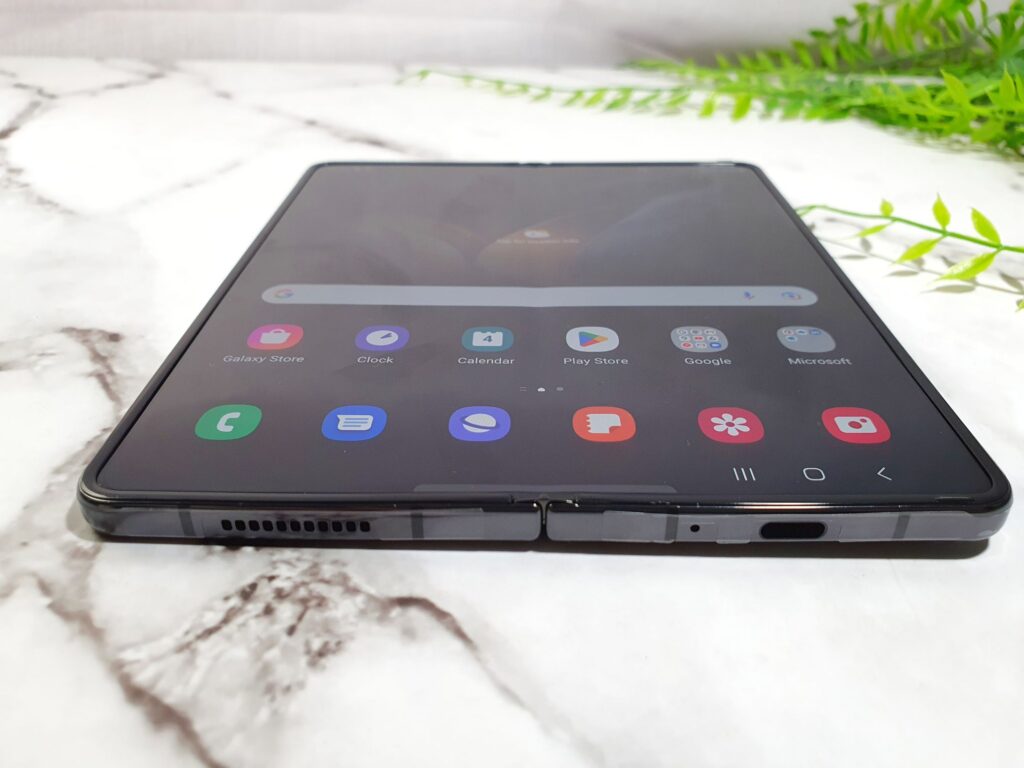 Connectivity options are top notch with fast WiFi 6E, Ultra Wideband (UWB) and 5G with both Sub-6 and mmWave. The display also retains support for an S Pen Fold Edition and the S Pen Pro, both of which have been designed to interact with the Fold4’s main display.
Connectivity options are top notch with fast WiFi 6E, Ultra Wideband (UWB) and 5G with both Sub-6 and mmWave. The display also retains support for an S Pen Fold Edition and the S Pen Pro, both of which have been designed to interact with the Fold4’s main display.
Of note is that the Galaxy Z Fold4 is the first device to run Android 12L, a variant designed specifically for large tablets and foldables with an app taskbar at the base of the phone for easy multitasking.
Here’s a quick recap of what the Galaxy Z Fold4’s specifications:
| Price | 256GB (RM6,799), 512GB (RM7,299), 1TB (RM8,299 – online only) |
| Display | 6.2-inch Dynamic AMOLED 2X Cover Display, 904 x 2,316 pixels, 120Hz, 23.1:9 ratio (Cover Display)| 7.6-inch, 1,812 x 2,176 pixels Dynamic AMOLED 2X foldable display, 120Hz, 21.6:18 ratio (Folding display) |
| Processor | Qualcomm Snapdragon 8+ Gen1 |
| Memory | 12GB RAM / 256GB [512GB and 1TB variants available] |
| OS | Android 12L + OneUI 4.1.1 |
| Cameras | 50MP f/1.8 w/ Dual Pixel PDAF and OIS + 10MP F/2.4 w/3x optical zoom and OIS, 12MP F/2.2 ultra wide + LED flash [main camera] / 10MP F/2.2 [cover display] / 4MP F/1.8 [under display] |
| Battery | 4,400mAh w/ 25W fast wired charging, 15W fast wireless charging, 4.5W reverse wireless charging |
| Size/Weight | 155.1 x 130.1 x 6.3mm (folded) / 155.1 x 67.1 x 14.2mm (unfolded) / 263g |
When subjected to synthetic benchmarks, our Galaxy Z Fold4 review sample scored the following in its default settings.
| 3DMark Wild Life | 7,728 |
| 3DMark Wild Life Unlimited | 10,062 |
| 3DMark Wild Life Extreme | 2,777 |
| 3DMark Wild Life Extreme Unlimited | 2,579 |
| Geekbench 5 Single core | 1,325 |
| Geekbench 5 Multi core | 3,879 |
| Geekbench 5 Vulkan | 7,228 |
| Geekbench 5 OpenCL | 6,617 |
| PCMark Work 3.0 | 13,664 |
| PCMark Battery Life | 14 hours, 43 mins |
When compared to its predecessor the Fold3 which had a Snapdragon 888 processor and a similar 12GB RAM, the Galaxy Z Fold4 has significantly enhanced performance and in many cases has double the scores of the Galaxy Z Fold3 in multiple benchmarks.
In practical scenarios, our Galaxy Z Fold4 review sample did not disappoint and handled everything thrown at it with deft aplomb. Swapping between multiple open apps was exceptionally smooth and it tackled both work related applications like Google Docs and Microsoft Word and Excel without issue and demanding games like Genshin Impact without missing a beat.
Samsung Galaxy Z Fold4 Review – User Interface and Multitasking with OneUI 4.1.1
Where the Galaxy Z Fold4 trumps the competition is an array of features optimised for multitasking. While putting up multiple apps onscreen was indeed possible in the Galaxy Z Fold3, the Galaxy Z Fold4 and its revamped One UI 4.1.1 user interface makes the whole process a lot more intuitive by allowing you to drag and drop apps so you can have up to 3 running simultaneously on the main folding display. Rather than fixed templates, you’re able to resize any of the open apps at will by simply moving the onscreen sliders.
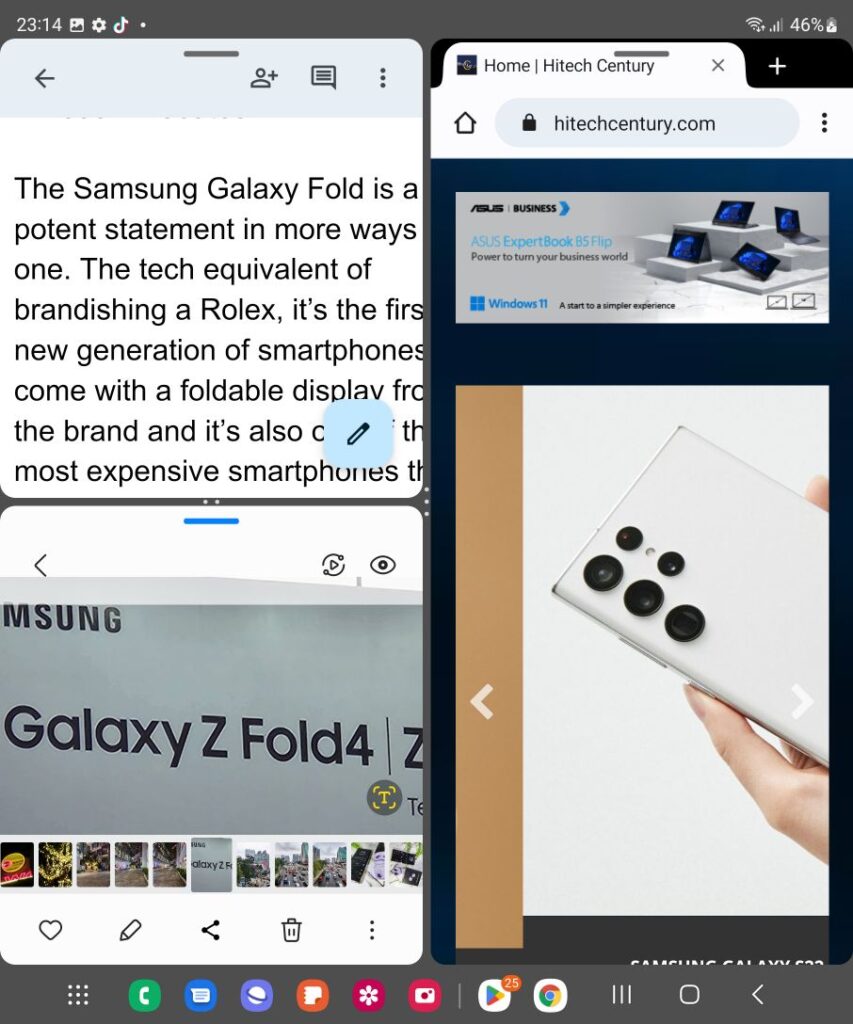
You’re also able to fire up simpler apps like the calculator in Pop-Up View floating windows. Not all apps are compatible with Pop-Up View or work smoothly in multi window mode but there’s enough of the important ones, especially productivity based apps like the Microsoft Office suite that its role as a portable productivity platform remains uncontested.
Watch on TikTok
In terms of multitasking, the Galaxy Z Fold4 sets the bar and if you are a heavy multitasking power user, this is thus far the only foldable device capable of doing it on the go. Better yet, you’re able to drag and drop content be it snippets of text or an image from one open window to another so processing paperwork with the Fold4 is as easy as it gets especially if you aim to eschew toting a laptop around.
Assuming you need a larger screen than what the Fold4 can offer, you can hook it up to a display via a USB-C to-HDMI cable or wirelessly via Miracast to kick in Samsung’s DeX desktop mode which gives you a desktop interface that mimics Windows. All you need is to pair up a wireless keyboard and mouse to the Fold4 and you have an ersatz PC in your pocket though the phone itself can be used as a touchpad.
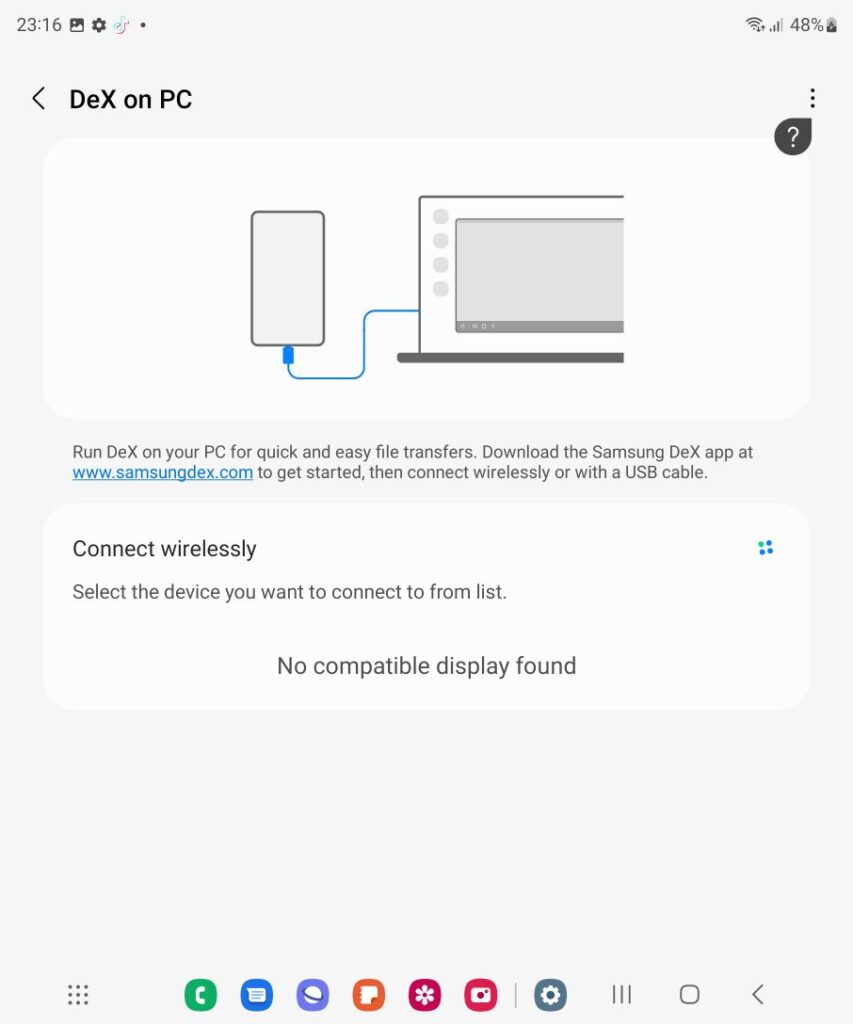
The phone’s unique Flex mode where it folds up halfway also offers additional functionality with selected apps, in particular for using the UDC and rear triple cameras and for watching video. For the former, Flex mode allows it to function as an ad hoc stand and also makes it useful for video calls while in the case of the latter, it unlocks an optimised user interface with videos playing on the top half and the controls on the bottom. Flex mode doesn’t work with all apps though outside of a select few thus far but it’s extremely handy for time lapse shots, Zoom calls and YouTube thus far.
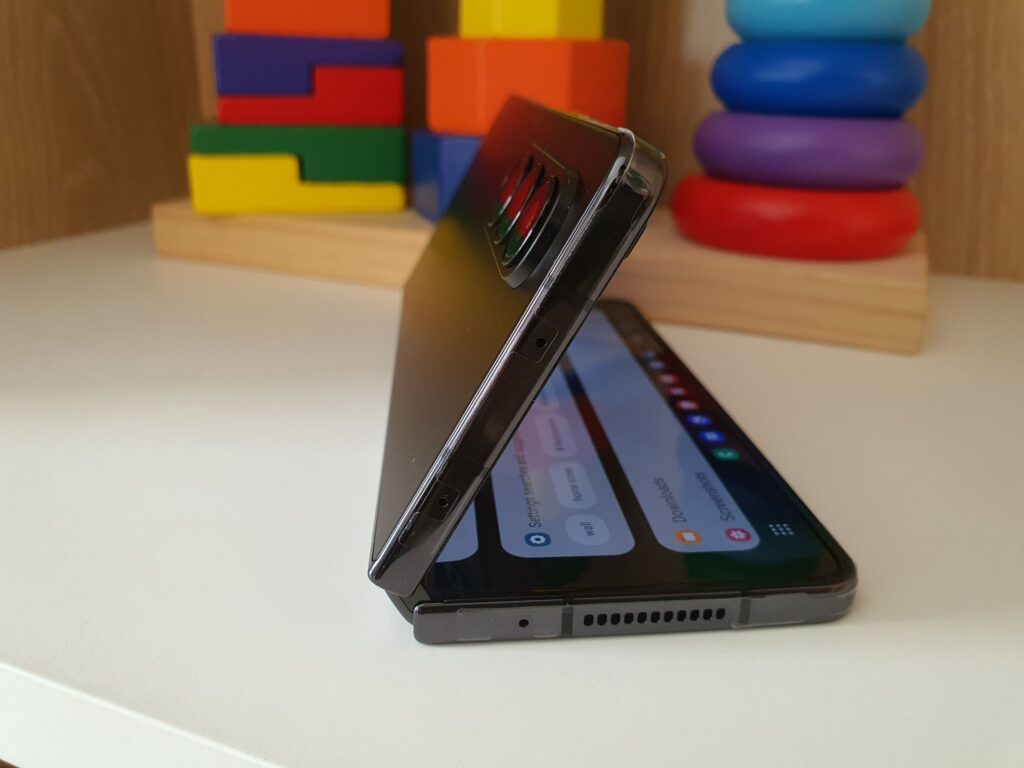
Perhaps the only niggle here is that the phone lacks a built-in S Pen stylus and to acquire one, you’ll have to purchase a separate S Pen to take advantage of it. We didn’t get one with our Galaxy Z Fold4 review sample so we weren’t able to field test this aspect of its capabilities but seeing how useful it was when we saw it implemented in the Galaxy S22 Ultra, it will cement the Fold4’s position as the ultimate foldable phone.
The most defining aspect of the Galaxy Z Fold4, it’s main 7.6-inch foldable display, serves up excellent detail and colour rendition with great visibility even under daylight conditions. Paired with the provided stereo speakers flanking the display, the Dynamic AMOLED 2X panel is an absolute delight for web browsing, gaming and movies with the aforementioned speakers kicking up a decent amount of sound.
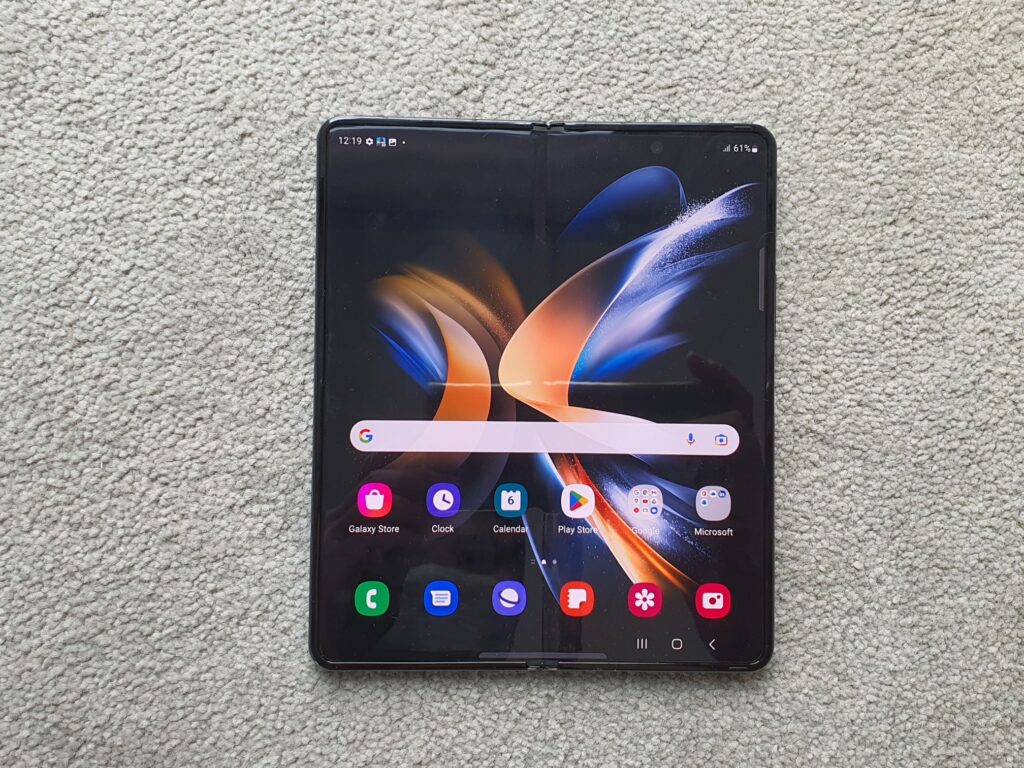
The 6.2-inch cover display up front is more comfortable to type on than its predecessor with the slightly wider aspect ratio helping navigation and lending the keyboard just that extra bit of space to minimise irksome typos.
Samsung Galaxy Z Fold4 Review – Battery Life
Battery life on the Galaxy Z Fold4 is dependent on how often you use the main folding display with heavier usage resulting in commensurately shorter battery life. It still uses the same 4,400mAh battery as the original Galaxy Z Fold3 but the efficiency of the Galaxy Z Fold4’s 4nm Snapdragon 8 Plus Gen 1 CPU, optimisation tweaks to the firmware and a more power efficient 120Hz display has resulted in significant improvements in endurance.
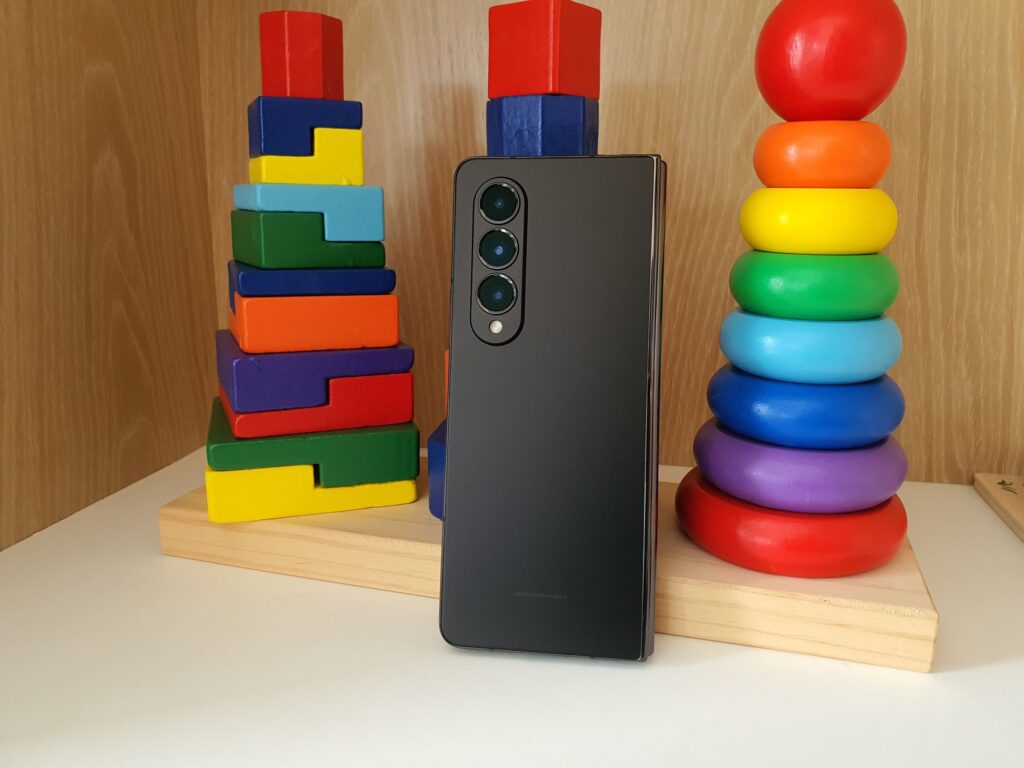
In PCMark’s battery life test solely with the Cover display, it enjoyed 14 hours and 43 minutes of active usage. Assuming you’re particularly frugal, this is easily worth two or so days of usage. Under more practical usage scenarios in combination with a mix of WiFi and data, dynamic brightness and refresh rate activated along with short 30 minute sprints using the main display for paperwork and gaming, our Galaxy Z Fold4 review sample managed to make it to sundown with an average of between 20% to 30% remaining battery life on the evening commute home after a full day’s worth of use.
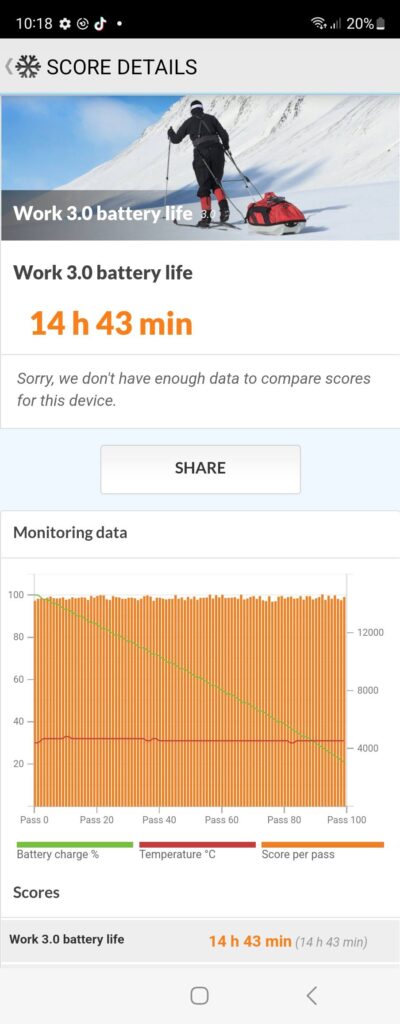
Charging it with a compatible 25W wired charger that has USB PowerDelivery support needed about an hour and 20 minutes to get to a full charge from dead zero.
You can alternatively opt for the improved, and slightly faster 15W wireless charging. In general, charging times aren’t a radical improvement over the Galaxy Z Fold3 and aren’t blazing fast compared to other flagship phones or more specialised models using proprietary chargers but it’s enough to get the job done.
Samsung Galaxy Z Fold4 Review – Cameras
The Samsung Galaxy Z Fold4 has a total of 5 cameras spaced across its chassis intended for different purposes. The front facing 10MP camera placed on top of the cover display is for video calls and selfies if you’re using said display. This camera is capped at 4K@60fps video capture.
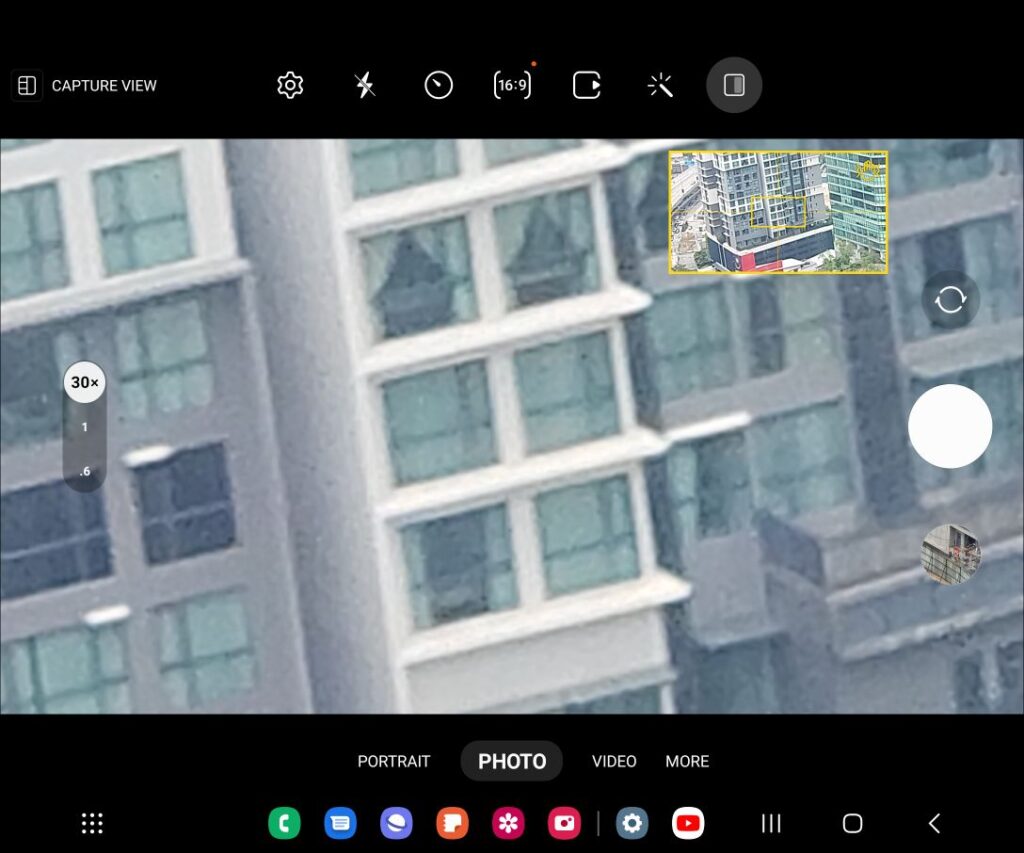
Unfold the display open and this task is taken up by a 4MP under display camera placed in a corner that’s capable of up 1080p@60fps video capture.

Samsung Galaxy Z Fold4 review – Captured with the UDC camera

Samsung Galaxy Z Fold4 review – 10MP front cover camera
There aren’t significant differences between these two cameras and the ones used in the Galaxy Z Fold 3 and both have a similar performance envelope save for the fact that the 4MP UDC in the Fold4 is harder to spot now on account of a denser array of pixels overlaying it. When the main display is in use, the UDC is almost invisible unless the display is off or viewing content with a strong white background.
The biggest upgrade is the rear triple camera array. Unlike the Galaxy Z Fold3’s modest triple camera array with every camera using a 12MP sensor, the Galaxy Z Fold4 has a camera setup closer to what is deployed on the Galaxy S22 and Galaxy S22+.
In effect, the Galaxy Z Fold4 has a triple camera array built around a primary 50MP F/1.8 camera with their Dual Pixel PDAF and optical image stabilisation with a large 1.0µm sensor. Riding shotgun is a 10MP F/2.4 telephoto camera that also has OIS and PDAF with 3x optical zoom as well as a 12MP F/2.2 ultra wide angle camera with a 123-degree field of view. This setup allows the phone to capture 8K@24fps video with up to 30x digital zoom for snaps and up to 12x digital zoom for video.
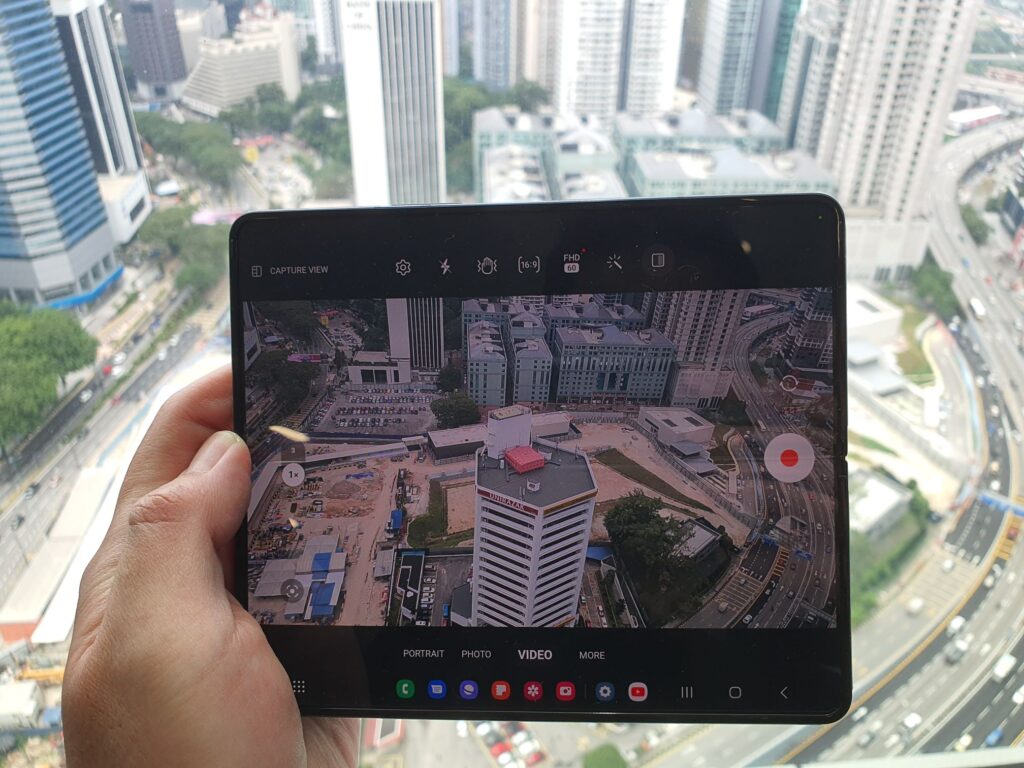
The rear triple camera can also alternatively be used as a selfie camera by turning the camera on and pressing the selfie camera icon in the camera menu while using the Cover display as a viewfinder though it’s such a small button that it can easily be overlooked by neophytes or those unfamiliar with Samsung’s camera user interface.
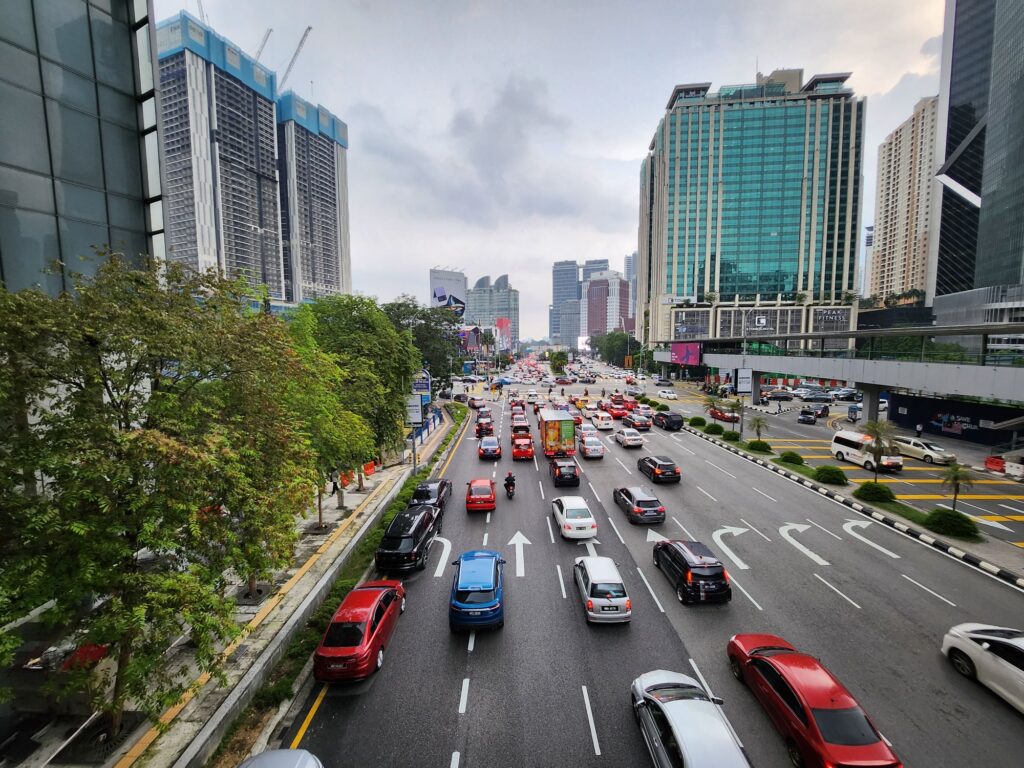
Samsung Galaxy Z Fold4 Review – Ultra Wide angle camera in daylight conditions

Samsung Galaxy Z Fold4 Review – 1x zoom on primary rear triple camera array
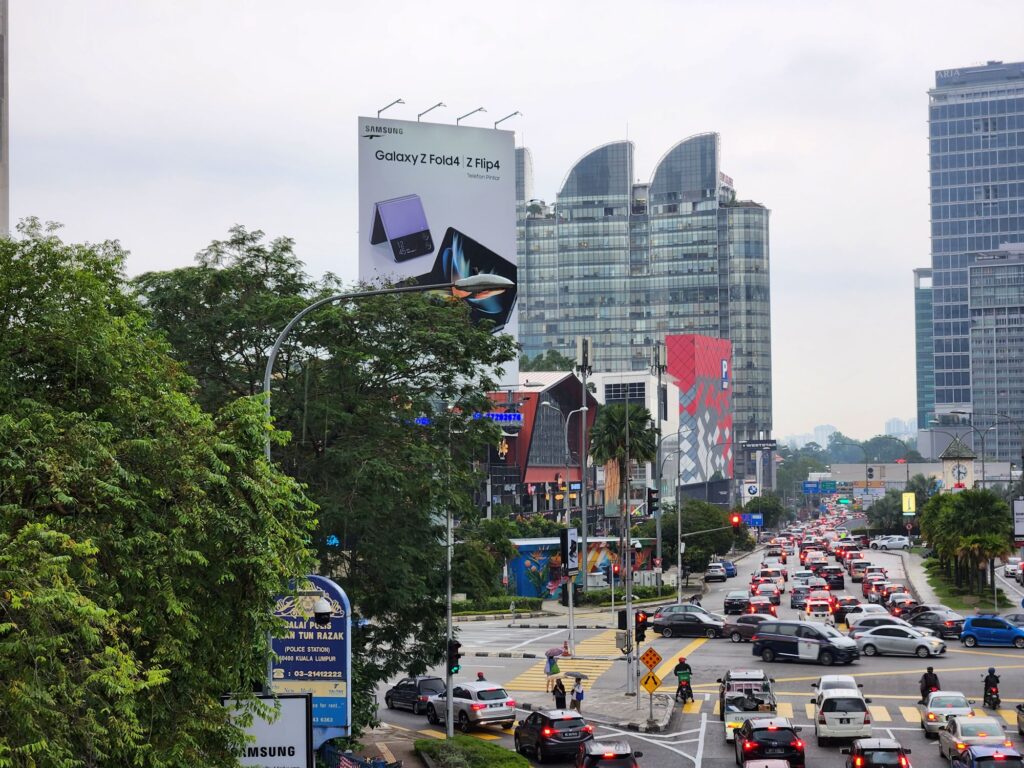
Samsung Galaxy Z Fold4 Review – 3x optical zoom on primary rear camera array
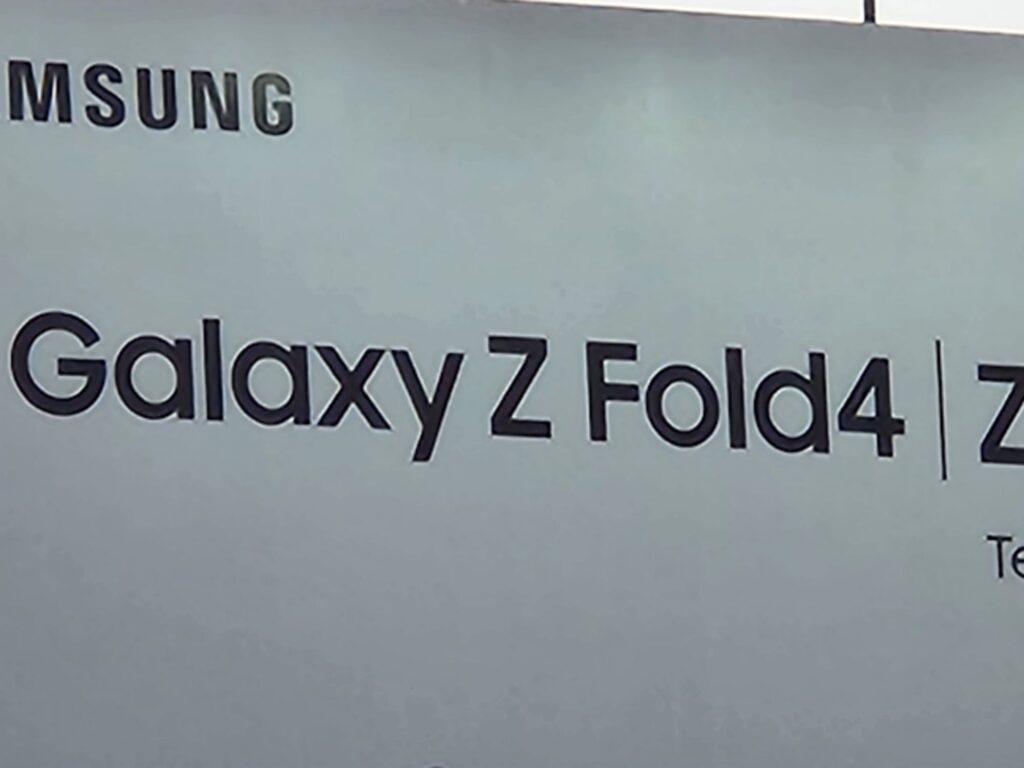
Samsung Galaxy Z Fold4 Review – 30x digital zoom on rear triple camera. In daylight conditions details are crisp enough that you can read the signboard from a distance.
In Flex mode, you can keep the cameras stable and take advantage of the rear triple camera array for time lapse or group shots while the front facing UDF camera can be used for video calls and selfies.
In terms of performance, the 10MP selfie camera and 4MP UDC camera haven’t diverged far from what the Galaxy Z Fold3’s cameras were capable of. Both are primarily intended for video calls and the 10MP cover display camera does decent selfie stills though the main rear triple camera array remains the preferred camera of choice if you’re looking to take selfies or video.
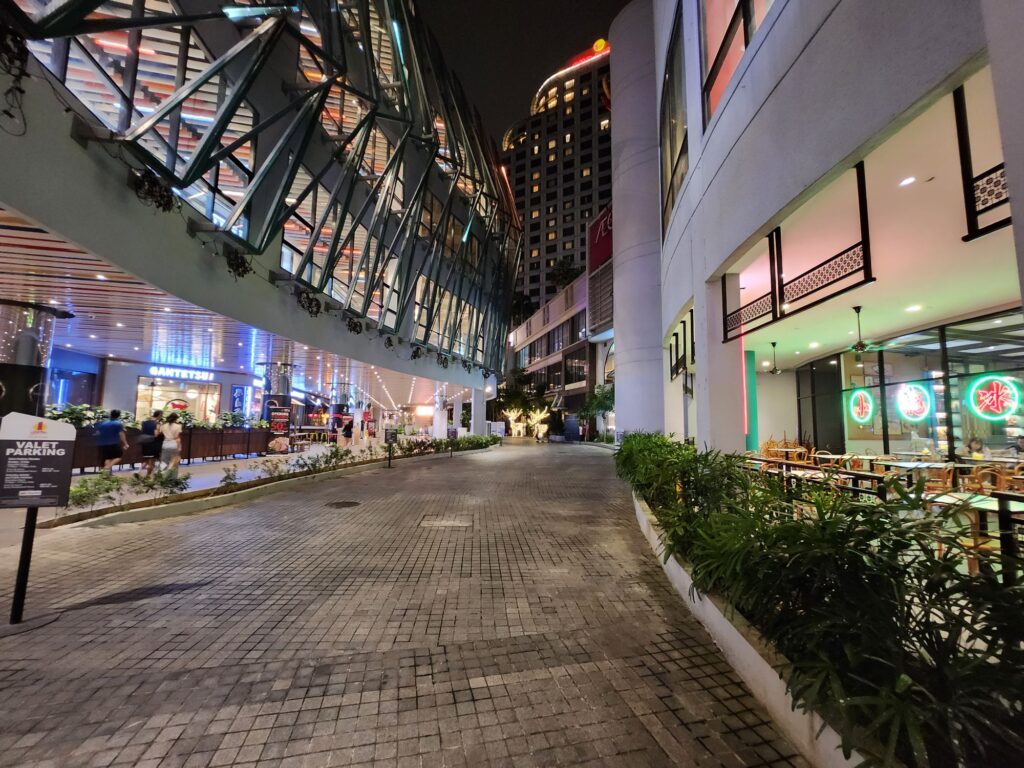
Samsung Galaxy Z Fold4 Review – Ultrawide angle camera in low light conditions
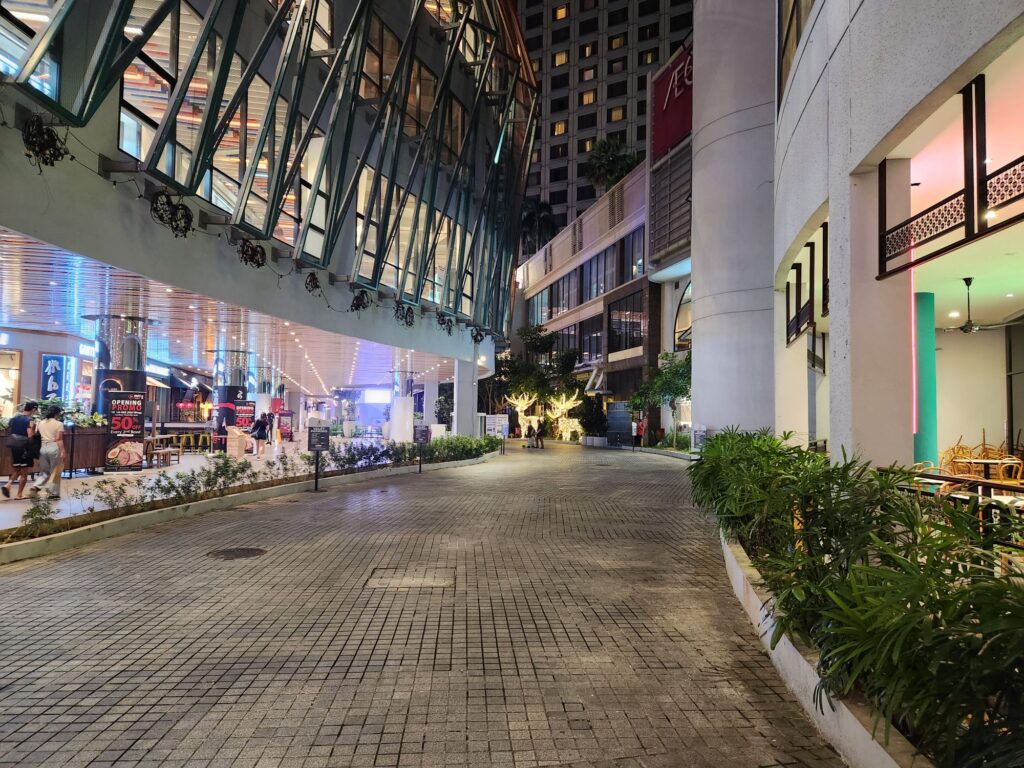
Samsung Galaxy Z Fold4 Review – 1x on primary camera in low light
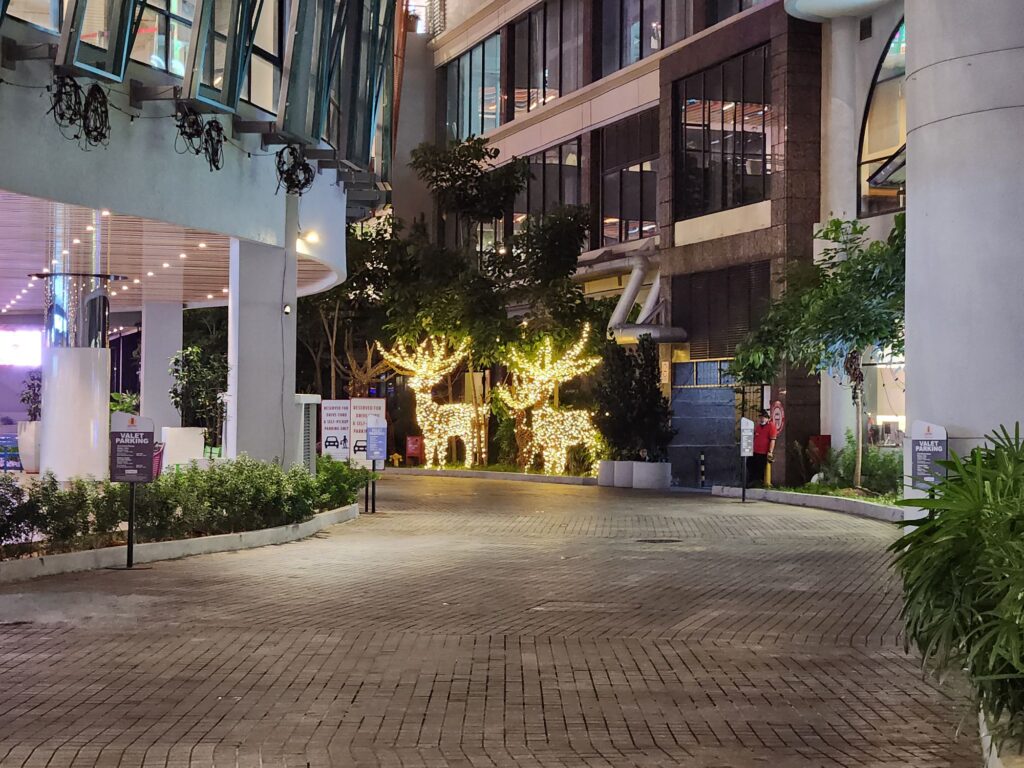
Samsung Galaxy Z Fold4 Review – 3x optical zoom on primary rear camera in low light

Samsung Galaxy Z Fold4 Review – 30X Space Zoom in low light. Details of the neon reindeer are still legible if somewhat dark but it’s still an impressive achievement.
While performance on the rear triple camera can’t match up to the Galaxy S22 Ultra in low light capability or telephoto zoom, what it has is very respectable indeed with a performance envelope akin to the Galaxy S22 and Galaxy S22 Plus main cameras.
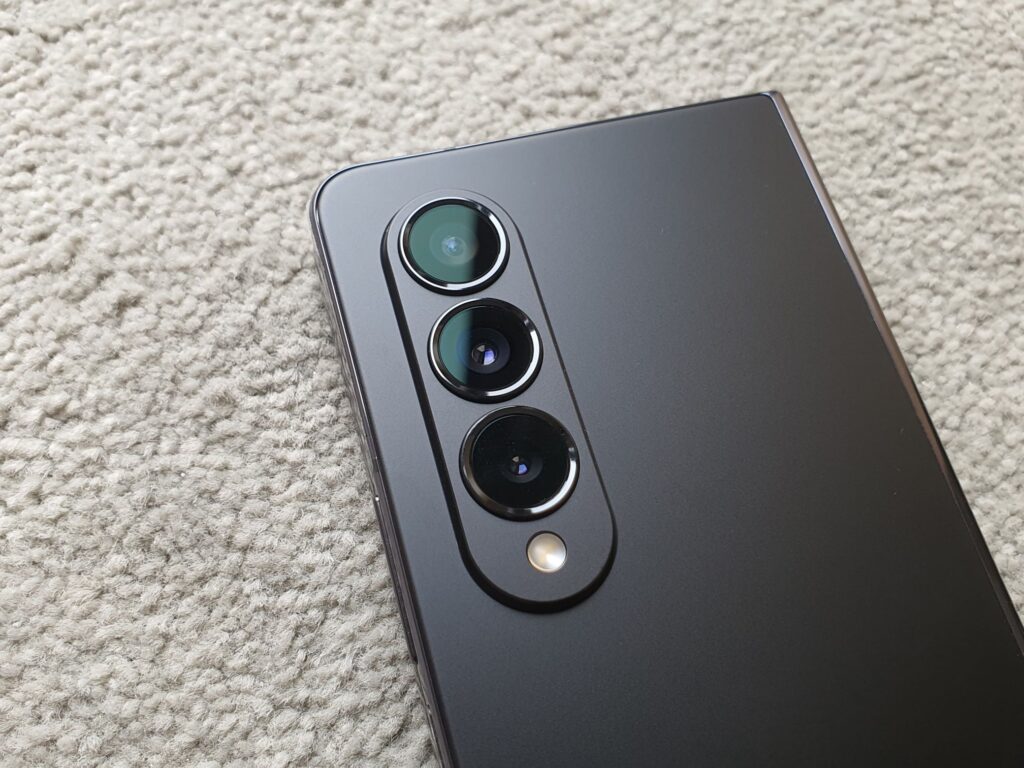
You get excellent shots in daylight and very usable shots all the way to 10x digital zoom. At 30x, it’s more of a novelty but you’re able to capture scenic details beyond what the naked eye can perceive. In low light, the Galaxy Z Fold4 was able to hold its own and i was able to serve up some pleasing shots indeed.
Should you buy the Samsung Galaxy Z Fold4?
To be fair, the Samsung Galaxy Z Fold4 isn’t a radical departure in form and function from its predecessor the Galaxy Fold3. It builds on the successes of its forebear and is enhanced in subtle yet meaningful ways. You get more comfortable to use displays with wider aspect ratios, an enhanced primary triple camera array on the rear and a lighter, slightly slimmer chassis with specifications worthy of a flagship.
Granted, some examples of foldables from competitors have appeared locally with flatter, sleeker displays but Samsung’s staunch commitment of offering at least 4 years of OS updates all the way to Android 16 and 5 years of security updates still leads the pack by a mile. If you’re looking for the best foldable in the market, the Galaxy Z Fold4 stands heads and shoulders above all else for 2022.
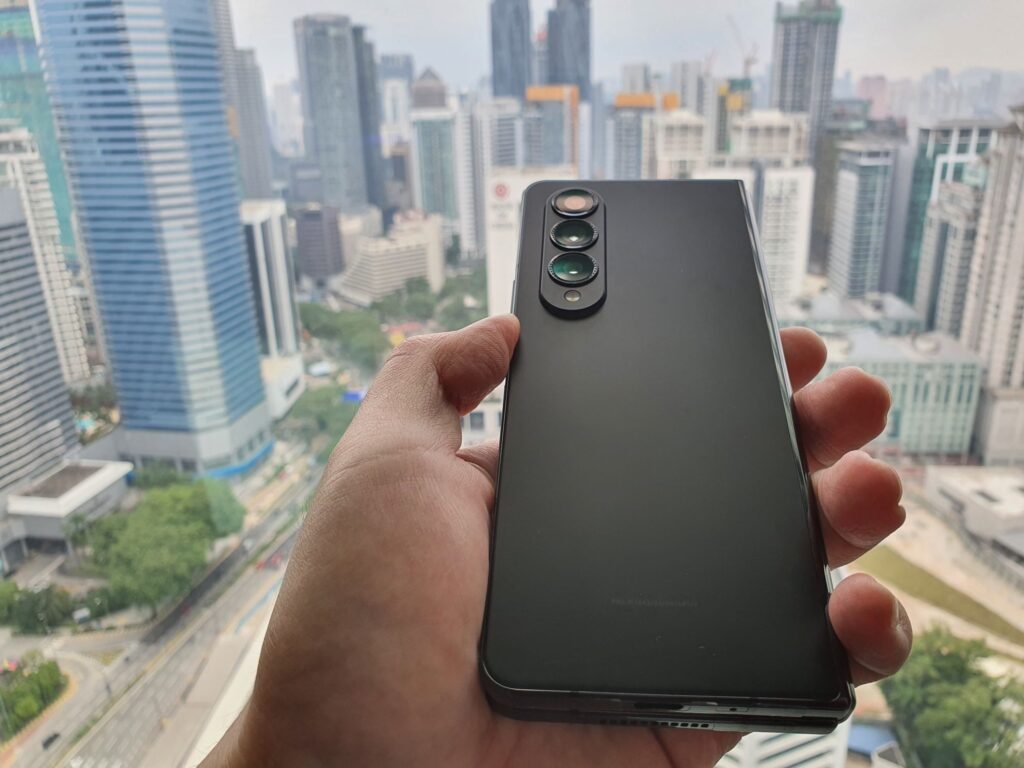
Samsung Galaxy Z Fold 4 review sample courtesy of Samsung Malaysia. To purchase and for more details please visit https://www.samsung.com/my/smartphones/galaxy-z-fold4/buy/
Samsung Galaxy Z Fold4
-
Display
-
Performance
-
Cameras
-
Battery Life
-
Value
Samsung Galaxy Z Fold4
The Samsung Galaxy Z Fold4 is a carefully considered upgrade that addresses the greatest concerns of its predecessor and improves the design, performance and user experience in almost every way. You get potent multitasking capabilities, cameras worthy of a flagship phone and superb performance crammed into a beautifully crafted chassis.
Pros
Improved rear camera
Slimmer and lighter than predecessor
Excellent performance
Wider aspect ratio makes it more comfortable to wield
Cons
No integrated SPen stylus
Not cheap

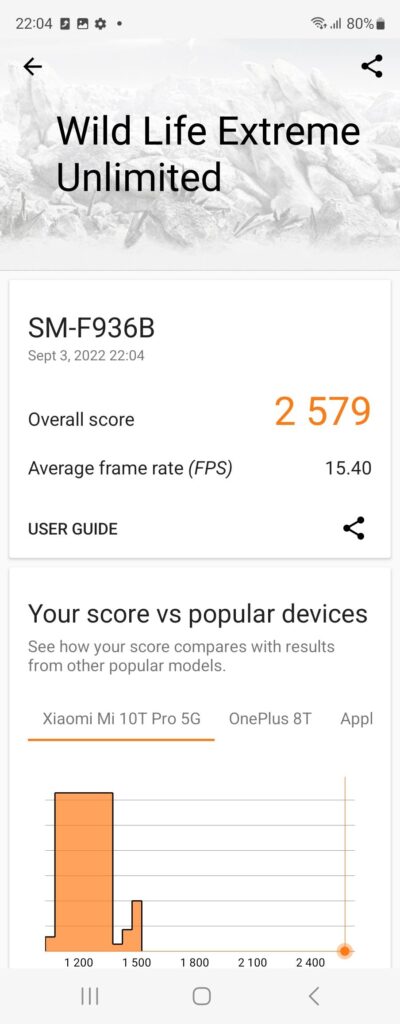
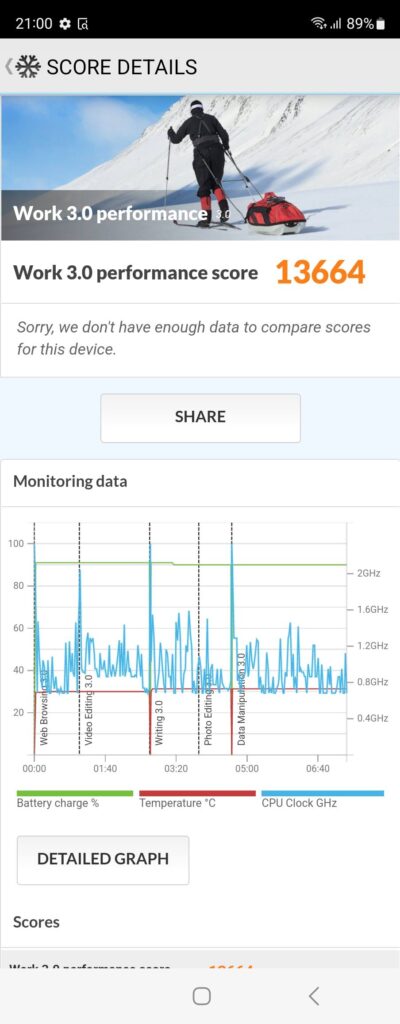
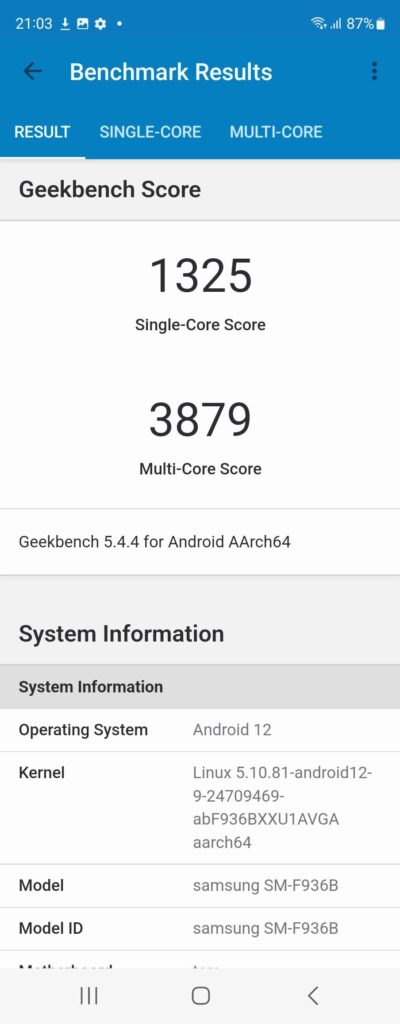


0 Comments